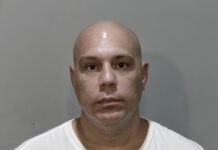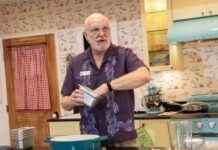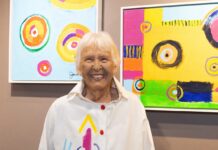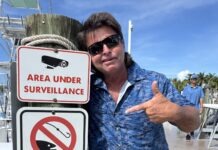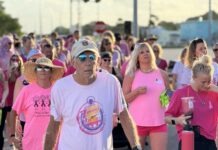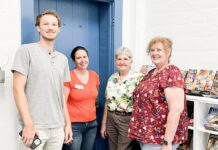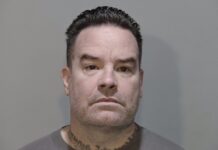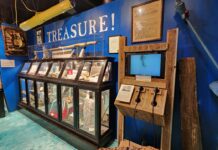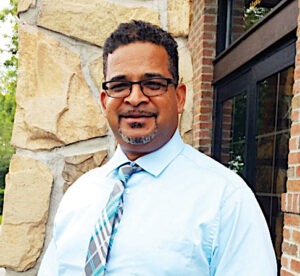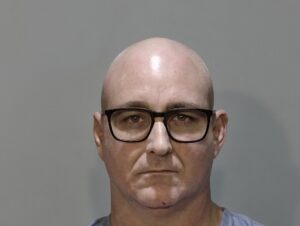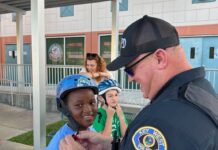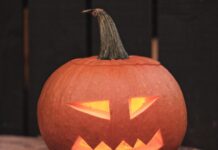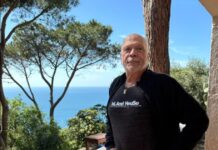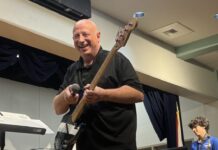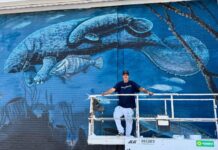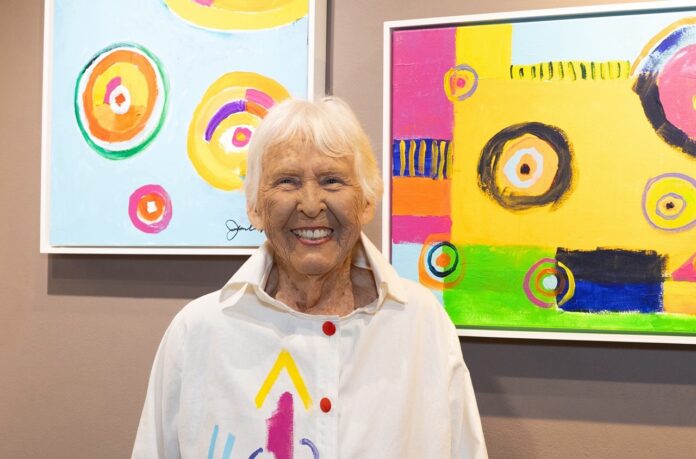
Jean Carper owns a Pac-Man machine that she calls her newest toy and a pink treadmill she uses for daily exercise. A colorfully painted five-foot-long replica alligator sprawls atop her patio table; a life-sized purple saguaro cactus is just one of the eye-catching pieces in her front-yard “sculpture garden.”
Her latest book explores the enigmas that surround death (the title, “Dead: New Answers to Eternal Questions About the Predicament of Being Dead,” offers a clue to her unique worldview), yet she’s full of life and revels in its experiences.
A woman of fierce intelligence and probing curiosity, Carper is famed as a medical journalist, authority on health and nutrition, and best-selling author — but that fame hardly seems to affect her, leaving her active mind free to focus on things she considers more important.
Her career credits are profoundly impressive. Carper was CNN’s first medical correspondent when the network launched, and a columnist for the national Sunday magazine USA Weekend for 14 years. She has written 25 books, primarily on nutrition and health subjects, including several that made the New York Times best-seller list.
In both her journalism and books, she displays a talent for making complex, daunting subjects approachable and understandable to readers. Her chapters in “Dead” are brief, written in a vibrant and non-intimidating style, with occasionally offbeat titles like “Should Ghosts Obey the Law?” and “Why Are Poltergeists So Rowdy?”
Not long ago, Carper rediscovered her passion for painting — a practice she enjoyed while growing up but abandoned for decades. Key West’s Harrison Gallery recently debuted a show of her abstracts, alive with vivid colors that seemingly enfold the viewer in energy and light.
Also not long ago, Carper sat down with the Keys Weekly for a lively conversation about “Dead,” her painting, and her enjoyment of Key West.
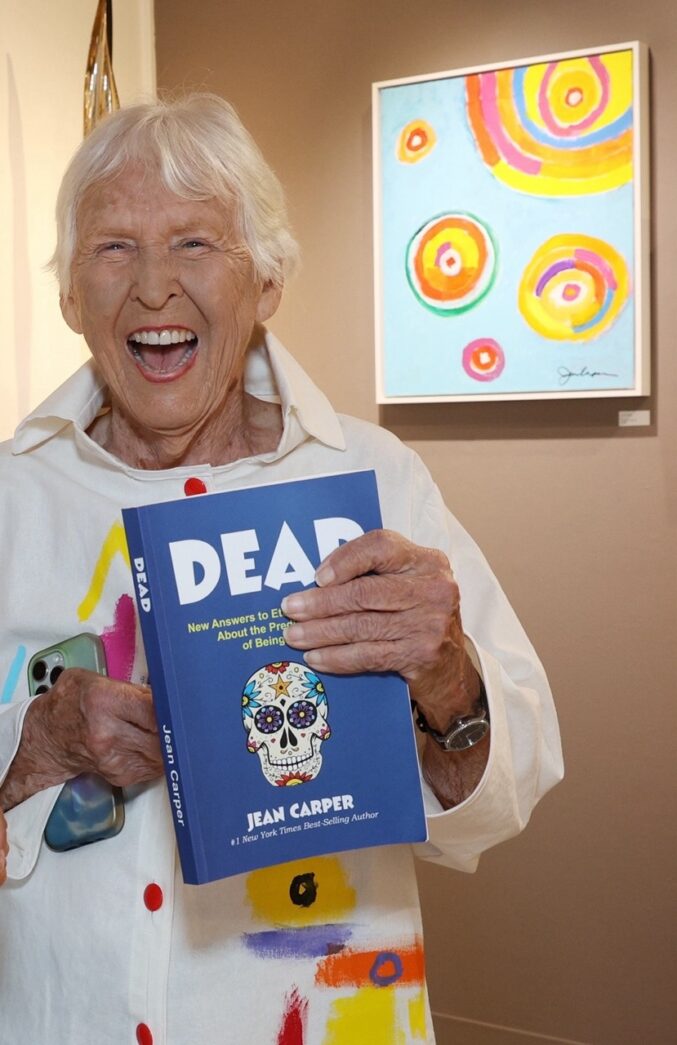
With your level of success, you could live anywhere. Why did you choose Key West as your home? I first came to Key West on a book tour. My editor and I came to Miami to promote the book, and I had never been here and she had never been here, so we just came down to Key West. I lived in Washington, D.C., and it was very cold. Everything was better here — and it was warmer. I’ve been here since the early 90s. Key West has always been fun and great.
Your book “Dead” presents information in small and approachable pieces, despite dealing with a very intimidating and serious subject. Why did you format it that way? Well, that was the format of my brain. All of my books, when I first started, were small sections — small chapters about a big subject. One of the things I really like to do is to take a huge subject like death and sort it out, condense it in my brain, and break it down so I could write it for other people to understand.
How do you want readers to respond to “Dead”? What do you want them to take away from reading it? Probably an exposure to the same kind of curiosity that I had going into it. Nobody really knows anything about death, including myself, because nobody has been there.
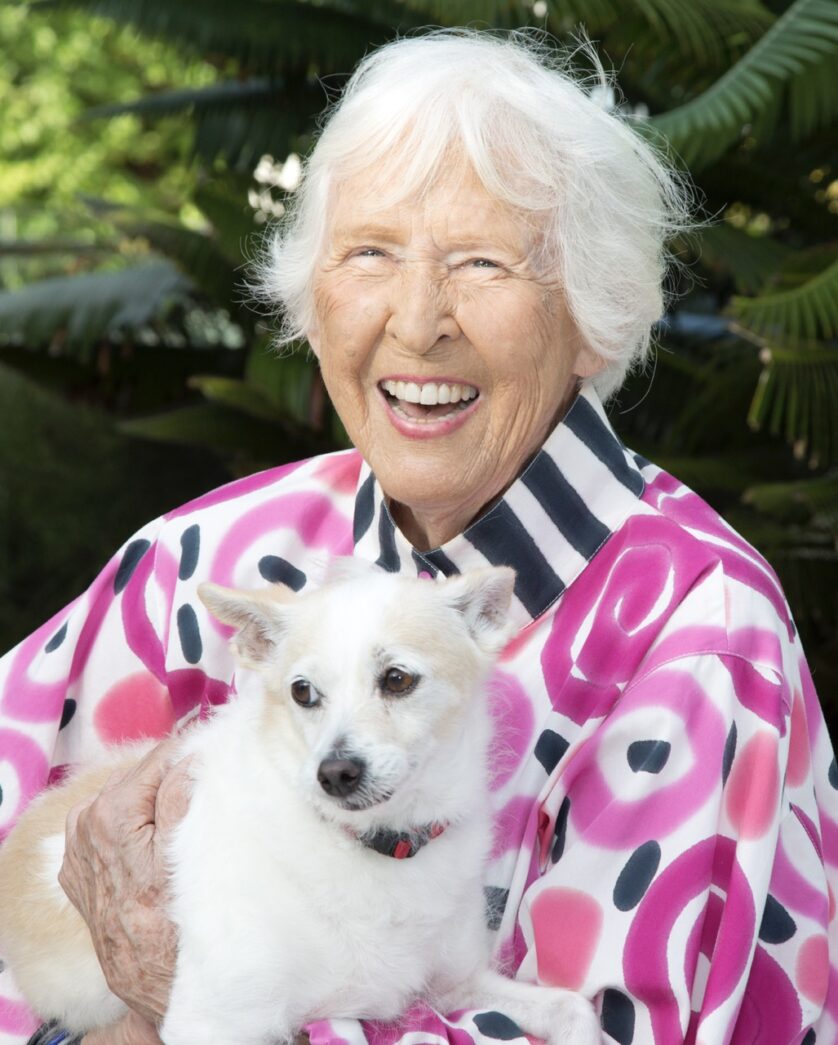
Your paintings are so vibrant and uplifting — such a contrast to the weightier topics you explore in your writing. What made you return to painting? It’s a lot more fun than writing! Writing is something that you love after you’ve done it — it’s not like painting, where you can love it while you’re doing it. When I was growing up, I had a grandmother who was a music person and also an oil painter. Growing up, I remember smelling oil paint. It was an influence. And I realized painting is much easier and faster to do than writing a book. If I write a book, it is going to take me a year. A painting might take more like a week, or two days or a day.
How do you balance your writing, your painting, and your other activities? Well, I was always a very energetic person. I just had to keep working on things because otherwise I would get so utterly bored. And one idea brings another idea to another idea.
What do you like most about life in Key West? It’s so easy. I like the people that I meet here — I always have since I first came. It’s a fluid life. You can go from one thing to another; your brain is not set in stone by any means. I love Key West.
